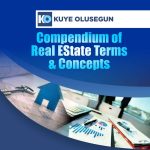Professional responsibility behaves on the professional to act in a professional manner, obey the law, avoid conflicts of interest and put the interests of clients ahead of their own interests. The concept of professional liabilities and responsibilities as applicable under professional practices are to:
- establish high and reputable standards of professional conduct and practice in the landed profession throughout the Federal Republic of Nigeria.
- secure and improve the technical knowledge that constitutes land economy, real estate and allied matters, valuation and appraisal of plant machinery & business asset, land and facilities management, building maintenance, property development and investment, and town and country planning, as well as land administration systems.
- facilitate the acquisition and dissemination of such knowledge by establishing Training Institution and working in close collaboration with universities, other institutions of higher learning and other professional bodies.
- promote the general interests of the profession and to maintain and extend its usefulness for the public good by advising, educating and informing members of the public, government departments, statutory bodies, local governments, associations, institutions and such like bodies on all matters coming within the scope of the profession.
- initiate and consider any legislation relevant to the objects of The Institution.
- endeavour to acquaint the public with the role of the Estate Surveyor and Valuer in the economic development of the country.
- enter into contracts, agreement, arrangements or joint ventures with member of the firms or individuals, company, trust, government, society, organisation, Institution, authority for the purpose of delivering complex professional services to a third party in the profession of Estate Surveying and Valuation and other professions.
Justice Tindal in Lanphier v. Phipos (1838) stated thus, “Every person who enters into a profession undertakes to bring to the exercise of it a reasonable degree of care and skill. He does undertake to use the highest possible degree of skill. There may be persons who have higher education and greater advantages than he has but undertakes to bring a fair, reasonable and competent degree of skill”. A professional is not guilty of negligence if he acts in accordance with a practice accepted as proper by a reasonable body of his professional colleagues skilled in that particular vocation. Furthermore, in Hedley Byrne & Co. V Heller Partners Ltd. Lord Morris said inter alia “if someone possessed of a special skill undertakes, quite irrespective of contract, to apply that skill for the assistance of another person who relies upon such skill a duty of care will arise”.
Professional liability arises where a professional is negligent, that is where the professional breaches a duty of care to another person. For example, a Valuer has a duty of care to a client, a teacher to a pupil and an engineer to a client. The duty is to perform the required task to the standard of skill, care and diligence of a reasonable person performing similar work. A person who suffers a loss because of a negligent act can make a civil claim for compensation for such loss. The employer is almost always liable for the actions of the employee under the principle of ‘vicarious liability’ and usually has an insurance policy to cover the loss. Where are insurance company makes a payment arising from professional liability, they are also arising from professional liability, they are also barred from recovering that money from an employee of the organisation in question, unless the employee was serious or wilful in his conduct. Third parties rarely sue.
Violations of professional responsibility in estate surveying practice
Finally, if any professional violates his/her professional responsibility may be subject to sanctions ranging from reprimands to temporary suspension to permanent disbarment. Common violations of professional responsibility include:
- Conflicts of interest:- This occurs where the Valuers of a firm is representing both sides his client and a third party at the same time. Conflicts of interest violate the right of each client to the loyalty of the Estate Surveyor and Valuer concerned. Conflicts may also occur if the Valuer’s ability to represent his client is materially limited by the Valuers loyalty to another client.
- Incompetent representation: Estate Surveyor’s and Valuers have a duty to provide competent representation and failure to observe this is considered a breach of professional ethics.
- Mishandling of client’s money: Clients often advance money to Valuers for a variety of reasons. The money must be kept in special client account until it is actually spent for the purpose meant for money collected from client should be properly kept also.
- Fee splitting arrangement: Valuers may not split fees with quacks, or with other Valuers who have not worked on the matter for which the client is represented.
- Disclosure of confidential information: Estate Surveyors and Valuers are on strict duty to keep information received in the course of their representations secret. The Valuers may not reveal or use this information to the detriment of their clients.
- Communication with represented parties: Estate Surveyors and Valuers may not communicate directly with a person who they know to be represented by counsel with respect to a matter for which the Valuer is seeking to communicate.
- Improper solicitation and advertising: Valuers generally may not solicit business by personally offering their services to potential clients who are not already close friends. Advertising by Valuers is also strictly regulated to prevent puffery and other misleading assertions.



